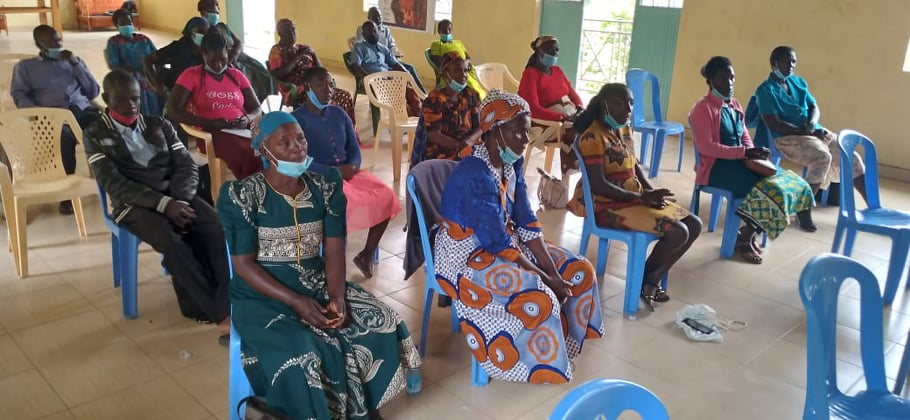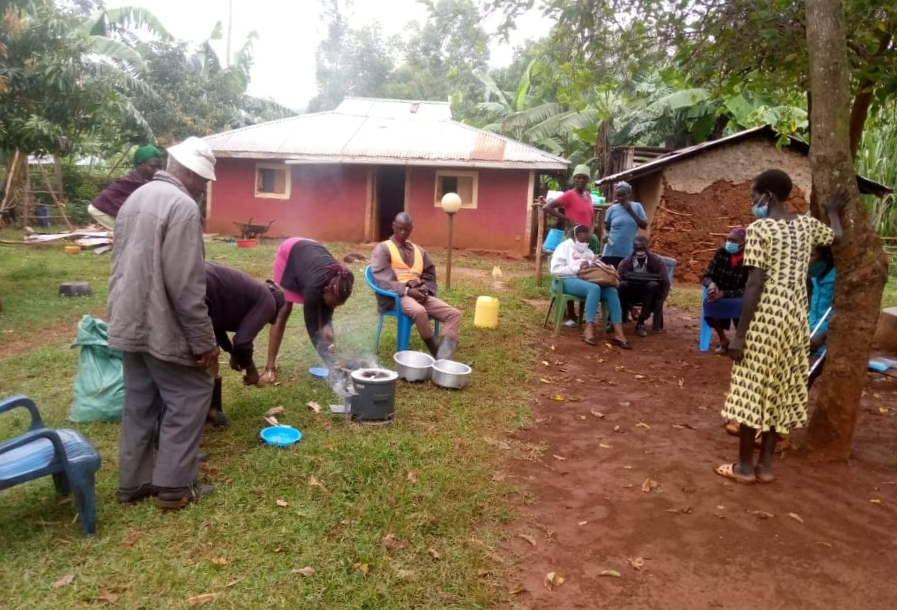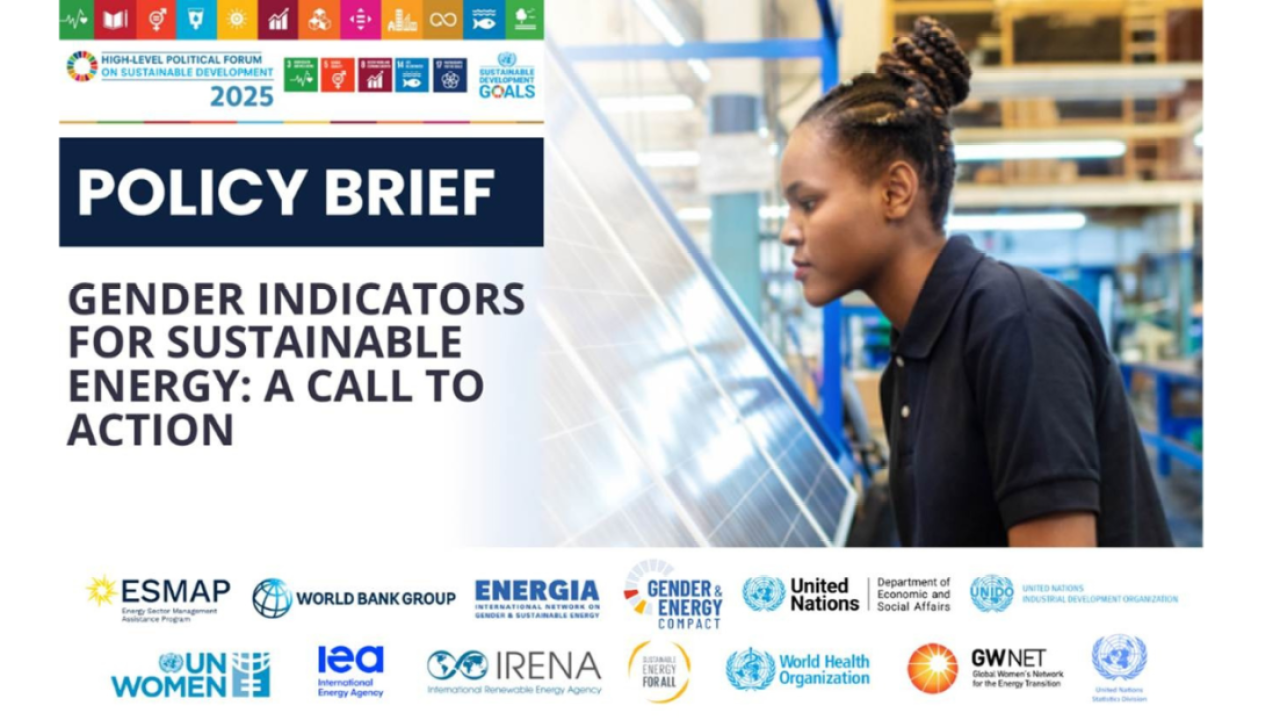To bridge the gender gaps throughout the energy supply chain and in decision-making groups, ENERGIA, EnDev, Modern Energy Cooking Services (MECS), Hivos and the Swedish International Development Cooperation Agency (Sida), launched the “Gender and Energy Innovation Facility” (GEIF) in July 2020. The Facility supports pilot projects in Kenya, Tanzania and Nepal that develop, test and evaluate innovative approaches to address the persistent gender energy challenges.
The Kenyan projects have recently come to an end of their pilot phase, with a mix of interesting findings and promising results that can be reviewed here.
In this article, we dive deeper into the experience of one of these projects, hallmarked by its remarkable experience along the innovation journey and its commitment to empower women via access to cleaner energy.
The project led by Nyalore Impact tried to change the local attitude to farm waste. They wanted to first ensure its collection by paying local women. Once collected, they would then turn the waste into briquettes for heating or cooking, providing a more sustainable solution than using firewood as the prevailing fuel source.
Nyalore involved a very large and diverse group of women. The women were mostly from remote villages around Homa Bay and varied in exact location, age, parental status, educational background and HIV/AIDs status (Homa Bay is estimated to have 4.5 times higher prevalence of HIV than the national average – NACC 2018).
Dorothy, the founder of Nyalore Impact and project lead, quickly gained trust by working with their field officers, who carry influence over the groups, and then meeting the women in person. Dorothy shared her vision and ideas, and began to work with the groups on understanding how they collect firewood and what that means for them economically, culturally and in their daily lives.
One of the largest potential areas for impact was through work carried out in an area where a high level of AIDS-affected women and children live alongside high poverty levels, a place where any additional income that does not prevent women from continuing the role of caregivers, can really make a difference. This was one reason behind why Nyalore focused particularly on how to find a way to provide income in their caregiving roles.
Unlike other projects at GEIF, Nyalore chose to expand their network and meet new communities. They didn’t want to apply the project to their existing groups or customers only. They were not afraid to reach out to the most vulnerable, to contact new partners and to learn directly from those people. They were open and transparent with their aims and that is what led them to being able to gain trust quickly. This alone led to Nyalore engaging new women in the sector of clean energy, and exposed these women to a new way of thinking.
Understanding and accepting that things can fail
Dorothy hit the ground running, and started collecting bio-waste from local farms and gardens while at the same time finding ways to produce them into briquettes for cooking and heating.
She developed a good business model and pricing for the briquettes for those that donated waste (either free or extremely cheap) as well as for the wider community. With a lot of work, Dorothy made significant headway on both briquette production as well as sales.
What was lagging behind was the collection of bio-waste. A number of factors led to the lack of production and in turn sales, including the seasonal and irregular nature of farming, different farming cultures and the logistics of collecting waste.
Despite the improved sustainability from the waste briquettes, Dorothy acknowledged that things weren’t going to plan. With a lack of waste, the whole idea would not work, as production and sales would not be feasible. So Dorothy decided to let go of the initial hypothesis.
While it is never nice to see something fail, failure doesn’t necessarily equate with a lack of success. It took significant courage for Dorothy and her team to admit failure, all the more as failure does not cost the same in every context. Dorothy understood this, embraced the attitude that failure was not necessarily the end, and reflected on the learning, mentoring and community feedback.
She didn’t give up, in fact she pushed on with full force, into a new idea – that by training and equipping women as “Tree bosses”, they can protect and in fact grow the forests. Where other projects saw a weak hypothesis as a reason to stop, she saw it as a reason to carry on. This is one reason that made her team and her project outstanding.

Finding new ways to achieve impact
A clear integral part of innovation is the understanding of the need to change and adopt a flexible approach. In the innovation context and especially in this project, the team required outstanding courage and resilience to apply such a shift. Furthermore, the shift was purely on the process, whilst the target impact remained the same. Nyalore was committed to working with the most vulnerable groups, finding them extra income, and reducing the amount of wood burnt.
Dorothy came to the conclusion of focusing on the relationship with the trees rather than the production of bio-waste. The routine of cutting down firewood and using it as a fuel for cooking is entrenched in local culture. Dorothy recognised that to encourage locals to use cleaner ways of cooking they first had to change this habit and view of trees. By the end of its pilot phase, Nyalore conceived the concept of “Tree Bosses”.
Turning her attention to questions such as: “What if women nurtured the trees? What if that was more profitable and respected than any other nurturing job?”, she started to explore if there was a way to change the process from cutting down trees to growing them.
She reviewed and revised her theory of change, to see the effect on the environment and energy, and most importantly the role that genders played in it. Traditionally, female roles in these communities are as caregivers, who are usually either unpaid or paid very little.
The concept of “Tree Bosses” was thus developed, where local women would be in charge of looking after various forests, ensuring they are protected and growing whilst getting paid to do so.
Dorothy explored a range of ways to make this a paid venture. The three potential funders could be individual donors with an interest in the environment or corporations looking to offset their carbon. A third possibility would be to further develop their partnership with the Kenya Forest Office Service: Nyalore is on talks with them to potentially combine the reforestation efforts undertaken by the Service with the project, whose women could be the subcontracted to carry out reforestation.
The pivot was large and substantial, however it was well informed. The “Tree Bosses” idea isn’t necessarily innovative as a product, however the process and reasoning behind is. Whilst most tree planting focuses on carbon offset, this project has gender empowerment at the very core, providing women the opportunity to change the narrative in two sectors. In gender they are looking to redefine nurturing jobs as ones that should be paid and properly valued. In clean energy, they want to shift individuals from using firewood to protecting trees and in turn encourage individuals to adopt cleaner cooking techniques.
Photo details:
1. Testing farm waste briquettes in every day cooking (Photo credit: Dorothy Otieno)
2. Sharing Nyalore Impact’s vision (Photo credit: Dorothy Otieno)







